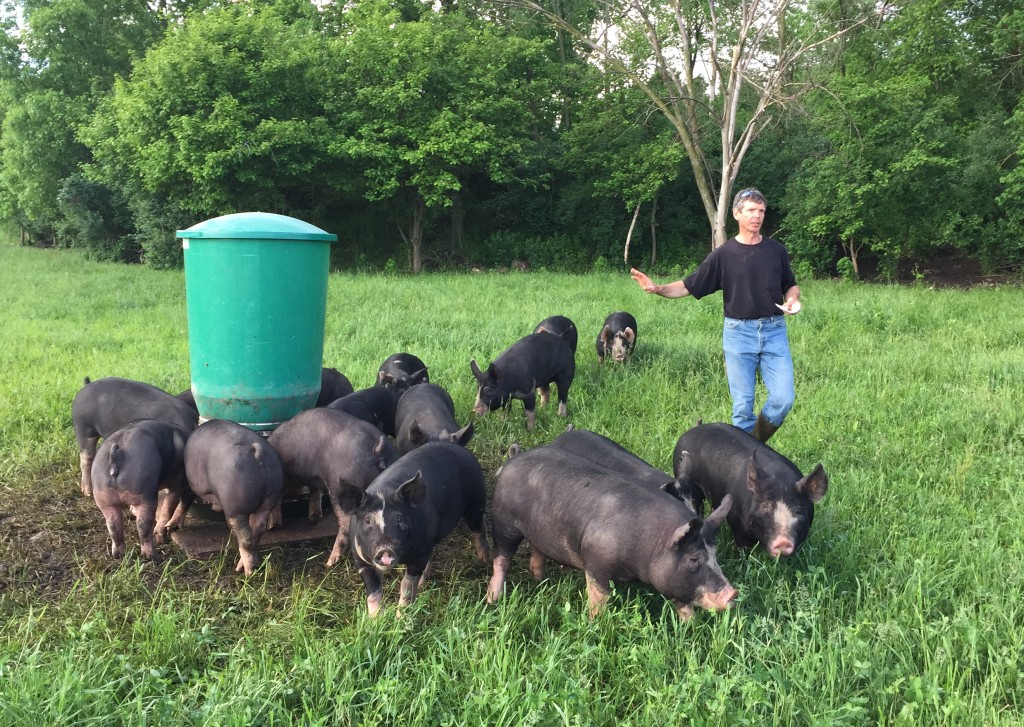As I wrote earlier, Christians will not consistently care and act as if God’s Creation mattered, unless churches weave a whole faith into their worship, theology, and culture. I’ve set myself a goal of figuring out what that weaving would look like in what I call the “whole faith church.” This is another post in that series.
The first feature of a whole faith church that I highlighted was, perhaps surprisingly, a church in which membership would mean something. Membership would be the binding together of believers around a central faith in what God offers us and calls us to through Jesus. That faith would be inextricably bound up with a commitment, growing out of transformed hearts, to living out that faith together in concrete, tangible, accountable ways.
In this post I highlight another feature of the whole faith church. It is this:
A defining feature of a whole faith church will be that this community of believers will be fully committed to demonstrating the proper and attentive relationship between humanity and Creation in its common meals, including communion.
This means that the food of the whole faith church will come as much as is practically possible from farms where the land, water, and animals of God’s earth are stewarded in ways that God would find fitting of a good, loving shepherd and from farm enterprises which support a good quality of life for the farmers and their communities.
Because our food system is complicated, the practical application of this principle will be complicated and not always black and white. This will be a long-term odyssey that a whole faith church will need to address with loving kindness. Education and research will be needed. Farms visited. Thoughtful meetings held to discern how to make this work on a day-to-day basis in the local place in which a whole faith church is nested. In upcoming posts, I’ll dive into specific questions about how this feature of a whole faith church would be lived out.
A good starting point, however, for examining any food choice for the whole faith church would be to keep Galatians 5:22-23 in mind. In other words, whole faith churches would ask this fundamental question – does the food we are thinking of purchasing come from a farm which has been operated with as much love, joy, peace, forbearance, kindness, goodness, faithfulness, gentleness and self-control as is possible?
If you look into it, you’ll probably find that much of the food served in the common meals of a church, especially any meat products being served, does not measure up very well to that criteria.
You do not have to work very hard, for example, to learn that most pigs are raised in ways that are cruel and completely counter to the fruits of the spirit. Reading Pig Tales: An Omnivore’s Quest for Sustainable Meat is a good way to learn more about the natural capacities and intelligence of these animals and how much has been sacrificed to provide cheap pork. The Chicago Tribune ran a series recently on the cruel excesses of the increasing number of pig factory farms in Illinois. What’s more, there are clear links between the indiscriminate use of antibiotics (which promote growth) in pig factory farms here and in China and the rise of strains of bacteria that are resistant to every antibiotic doctors have in their arsenal. This resistance is leading to the misery-filled deaths of adults and children
If you do this research with an open mind and transformed heart, it becomes clear that the factory farming of pigs and their inhumane slaughtering in high-speed facilities is a cruel and unloving thing to do to the animals, workers, neighbors, communities, and waterways of any place. It is clear, too, that a Christian, and especially a church, could not in good faith knowingly choose to purchase and consume the meat of pigs produced from such a system.
That a church would do so is another example of human culture, economy, and convenience overwhelming a church’s commitment to not just believing but actually living as if God existed and that this is His world.
In a church’s life, more than in any other setting, the values of God should prevail.
For a whole faith church, that desire to have God’s will be done on earth as it is in heaven will naturally prompt the church to think about food carefully. The idea is not to create a wide array of new rules and regulations. But the whole faith church will make it a habit to treat all of life as if it issued from God and as if it matters to God and as if our hearts should be engaged in all the ways we interact with life around us.
Creating and consuming common meals that are, at their source, in synch with the fruits of the spirit will ultimately be a life-giving habit and discipline for the whole faith church.
One literally life-givinging impact will be that the common meals will be better for the health of those who eat them.
The thoughtfulness that will go into the common meals will also make members of the whole faith church mindful of the value of God’s Creation to God.
The effort to create these meals will connect the church with farmers, like Steve and Marie Deibele of Golden Bear Farm, who are raising cows and pigs in ways consistent with the fruits of the spirit. This will be rewarding for everyone involved.

Steve Deibele of Golden Bear Farm with his pigs that are raised with great care on pasture.
In following this discipline, members will be reminded, too, of their common hope for a new heaven and new earth where God’s shalom will prevail.
Creating and consuming these common meals will also, and perhaps most importantly, further inspire members to pursue their common mission of reconciling this challenging, complex world to God in every corner of their lives,
To paraphrase an insight from Stephen Webb in his book Good Eating, it will feel right in every way for a church to say grace over food that has some grace in it.








